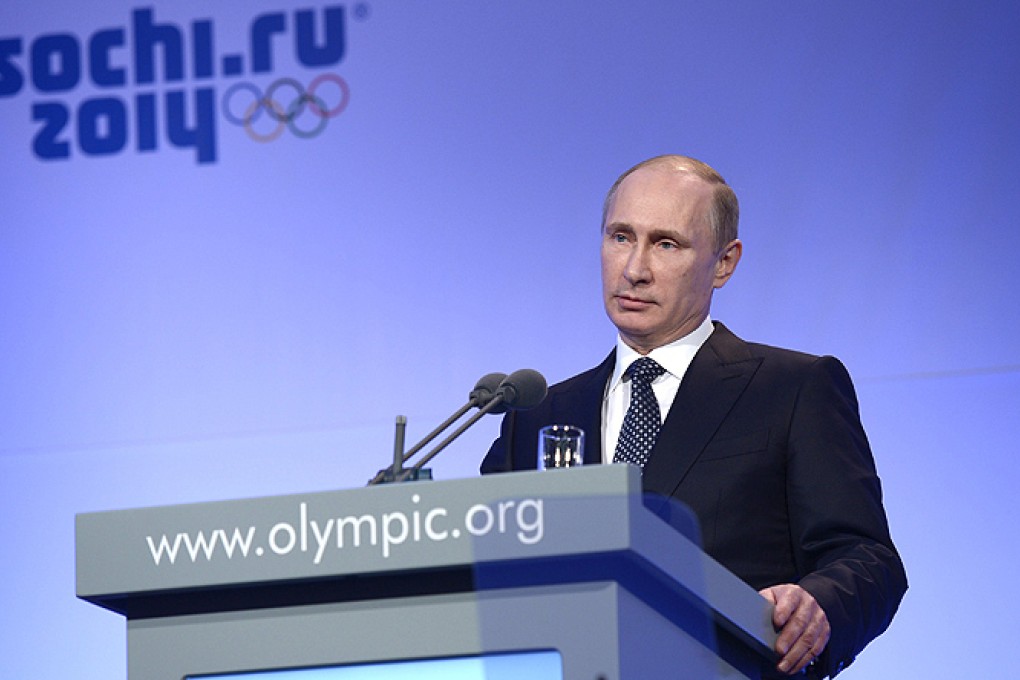Sochi 2014: world authors join protest against Putin
Russia's anti-gay and blasphemy laws threaten freedom, says open letter signed by more than 200 writers from 30 countries

More than 200 prominent international authors, including Gunter Grass, Salman Rushdie, Margaret Atwood and Jonathan Franzen, have joined forces to denounce the “chokehold” they say Russia’s anti-gay and blasphemy laws place on the freedom of expression, amid a growing swell of protest on the eve of the opening of the Sochi Winter Olympics.
The authors’ open letter, published in the Guardian on Thursday, comes as athletes and journalists from around the world descend on the Black Sea resort before the lavish opening ceremony at a specially built stadium on Friday evening. President Vladimir Putin has spoken of the Games as a personal project to show the world Russia’s greatness and its ability to host such major events, but the build-up has been marred by controversy over corruption and rights abuses in Russia.
The open letter to Russia condemns the recently passed gay propaganda and blasphemy laws, which respectively prohibit the “propaganda of non-traditional sexual relations” among minors and criminalise religious insult, as well as the recent recriminalisation of defamation. The three laws “specifically put writers at risk”, say the authors, and they “cannot stand quietly by as we watch our fellow writers and journalists pressed into silence or risking prosecution and often drastic punishment for the mere act of communicating their thoughts”.
Grass is joined as a signatory by three fellow Nobel laureates, Wole Soyinka, Elfriede Jelinek and Orhan Pamuk, and by acclaimed writers from over 30 countries, including Ariel Dorfman, Carol Ann Duffy, Edward Albee, Julian Barnes, Ian McEwan and Neil Gaiman. Russia’s foremost contemporary novelist, Lyudmila Ulitskaya, is also a signatory to the letter.
“The chokehold that the Russian Federation has placed on freedom of expression is deeply worrying.”
Rushdie described the campaign as essential, telling the Guardian that it is “incredibly important to Russian writers, artists and citizens alike”.